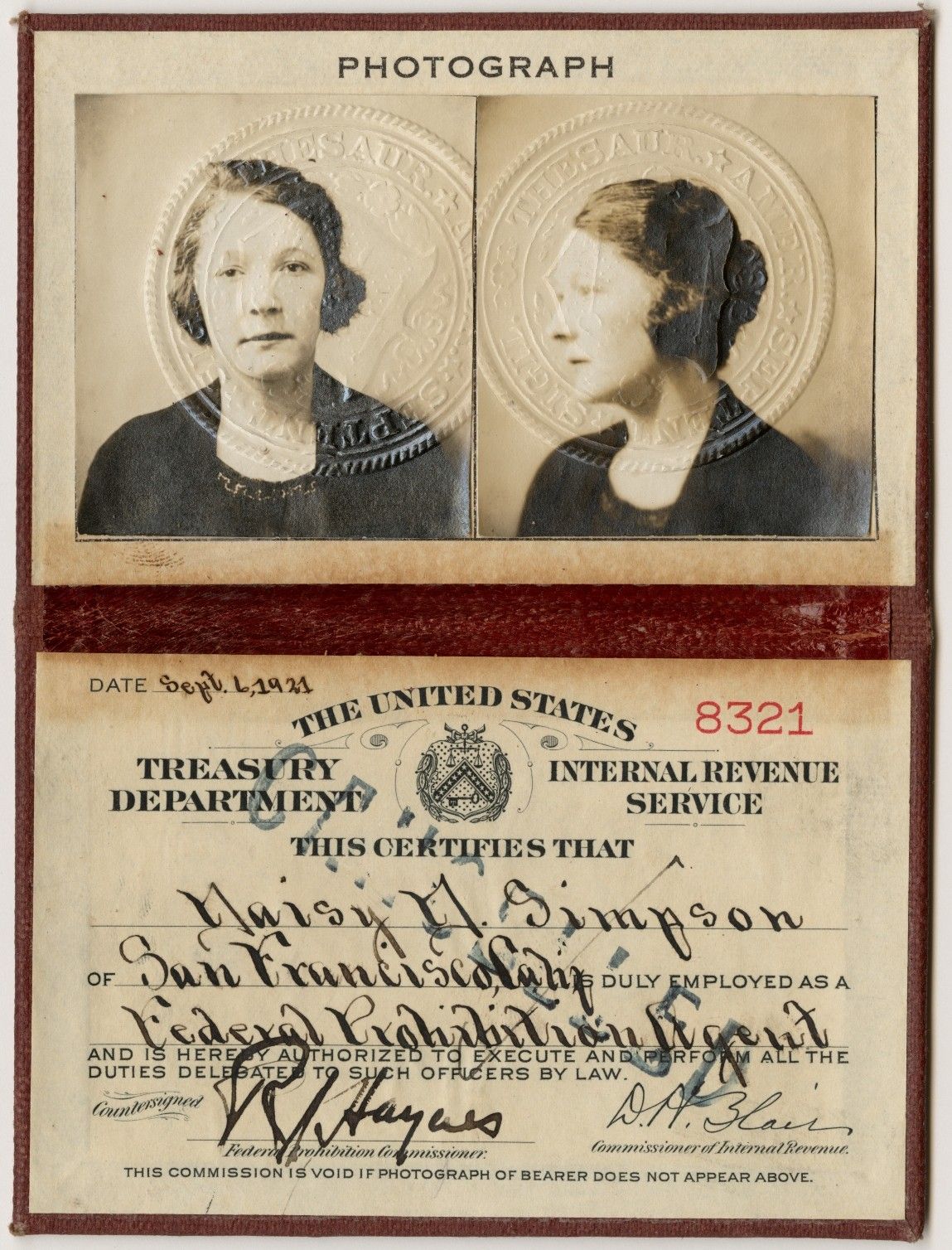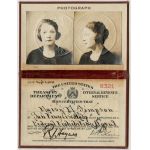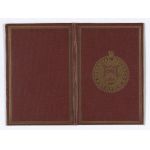Identification Card for Prohibition Agent Daisy D. Simpson
9/6/1921
Add to Favorites:
Add all page(s) of this document to activity:

Add only page 1 to activity:
Add only page 2 to activity:
Daisy Simpson was one of the Treasury Department’s most famous Prohibition officers (called “prohis”). Known as the “Lady Hooch Hunter,” Simpson quickly attracted attention—and press—with her spectacular busts of Volstead Act violators.
Passed on October 28, 1919, the Volstead Act implemented the 18th amendment to the Constitution of the United States, which established Prohibition. The act empowered the Federal Government, as well as state and local governments, to enforce Prohibition by limiting the manufacture, sale, or transportation of alcohol.
The Treasury Department enforced the act, and women were integral to the job. While women gained the equal right to vote 1920, gender-based assignment of tasks endured. Women worked in the Treasury’s Prohibition Unit, but their roles were limited to taking field notes or photographs for their male counterparts following a bust. However, a few women managed to become field agents themselves—the most famous of these was Daisy Simpson.
A delinquent in her youth, Simpson spent many of her younger days in dingy dives, taking illegal drugs and hanging around with low-level gangsters. Eventually, she changed her ways and joined the morals squad of the San Francisco Police Department during World War I. Her past experiences made her incredibly proficient at her new job. With the onset of Prohibition, she quickly signed up to be a Bureau of Prohibition agent. Simpson rapidly became a star in the sensationalist press of the 1920s. Her fame came from chasing down bootleggers and working undercover on the streets of San Francisco, but she also worked special assignments as far afield as Baltimore, Chicago, Milwaukee, and New York.
Not everyone, however, was so enamored with her style. Her raids and arrests nabbed low-level distributors more often than the crime bosses the justice system desperately wanted to prosecute. More than one judge complained about the number of trivial cases Simpson’s evidence brought to trial or dismissed a case because of entrapment. Although her tactics were not uncommon of Prohibition agents, that did not mean they were always legal.
Simpson’s successful captures of bootleggers and rumrunners, however, was not enough to help her escape the gender discrimination of her times. In 1925, a San Francisco Treasury Department official banned women from serving as field agents. Simpson, unwilling to face life behind a desk as a secretary or stenographer, resigned her post soon thereafter.
Passed on October 28, 1919, the Volstead Act implemented the 18th amendment to the Constitution of the United States, which established Prohibition. The act empowered the Federal Government, as well as state and local governments, to enforce Prohibition by limiting the manufacture, sale, or transportation of alcohol.
The Treasury Department enforced the act, and women were integral to the job. While women gained the equal right to vote 1920, gender-based assignment of tasks endured. Women worked in the Treasury’s Prohibition Unit, but their roles were limited to taking field notes or photographs for their male counterparts following a bust. However, a few women managed to become field agents themselves—the most famous of these was Daisy Simpson.
A delinquent in her youth, Simpson spent many of her younger days in dingy dives, taking illegal drugs and hanging around with low-level gangsters. Eventually, she changed her ways and joined the morals squad of the San Francisco Police Department during World War I. Her past experiences made her incredibly proficient at her new job. With the onset of Prohibition, she quickly signed up to be a Bureau of Prohibition agent. Simpson rapidly became a star in the sensationalist press of the 1920s. Her fame came from chasing down bootleggers and working undercover on the streets of San Francisco, but she also worked special assignments as far afield as Baltimore, Chicago, Milwaukee, and New York.
Not everyone, however, was so enamored with her style. Her raids and arrests nabbed low-level distributors more often than the crime bosses the justice system desperately wanted to prosecute. More than one judge complained about the number of trivial cases Simpson’s evidence brought to trial or dismissed a case because of entrapment. Although her tactics were not uncommon of Prohibition agents, that did not mean they were always legal.
Simpson’s successful captures of bootleggers and rumrunners, however, was not enough to help her escape the gender discrimination of her times. In 1925, a San Francisco Treasury Department official banned women from serving as field agents. Simpson, unwilling to face life behind a desk as a secretary or stenographer, resigned her post soon thereafter.
This primary source comes from the Records of the Internal Revenue Service.
National Archives Identifier: 17408397
Full Citation: Identification Card for Prohibition Agent Daisy D. Simpson; 9/6/1921; 8321 [Daisy D. Simpson] - Federal Prohibition Agent; Identification Card Files of Prohibition Agents, 1920 - 1925; Records of the Internal Revenue Service, Record Group 58; National Archives at College Park, College Park, MD. [Online Version, https://docsteach.org/documents/document/id-simpson, April 23, 2024]Rights: Public Domain, Free of Known Copyright Restrictions. Learn more on our privacy and legal page.





